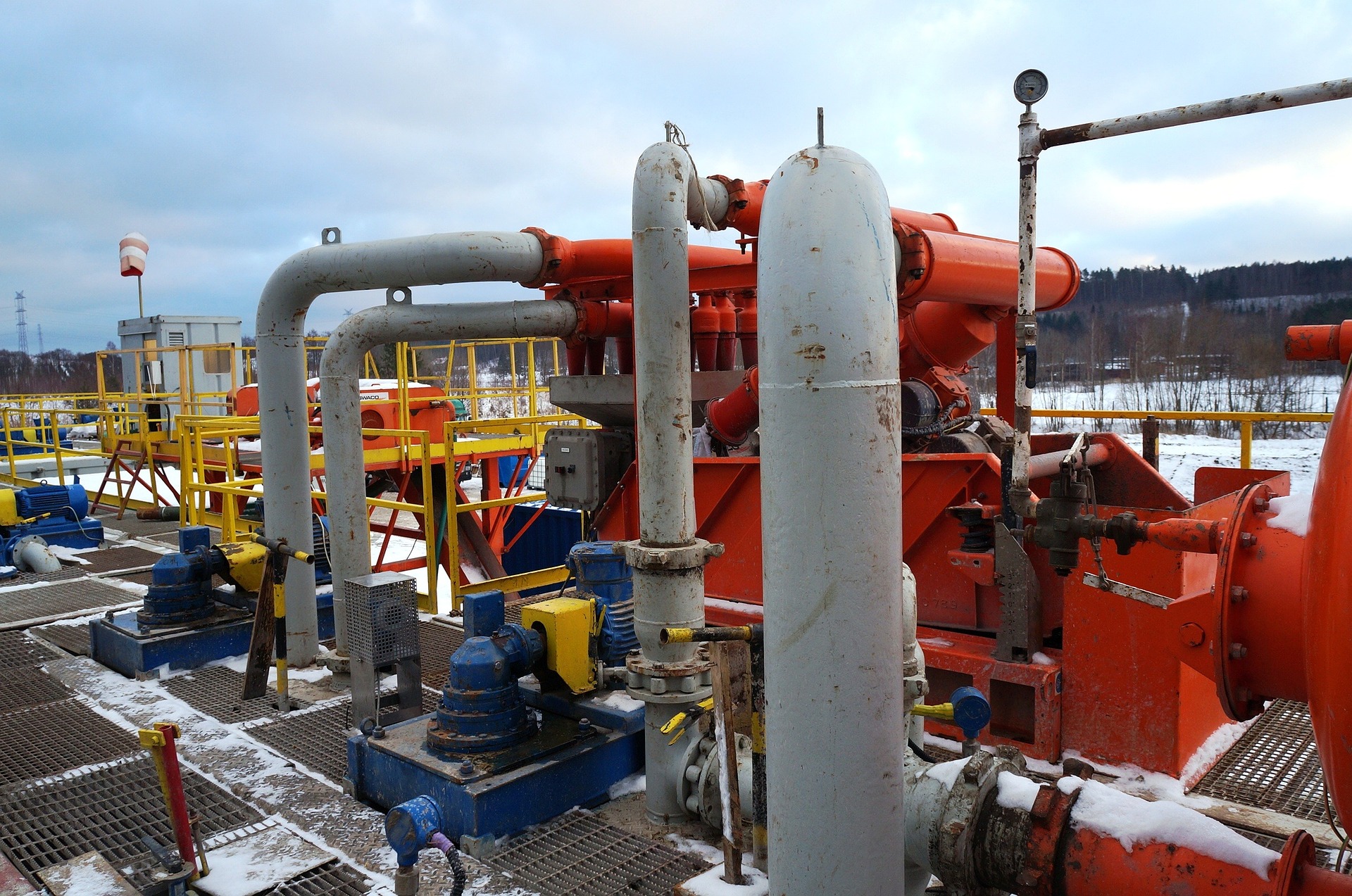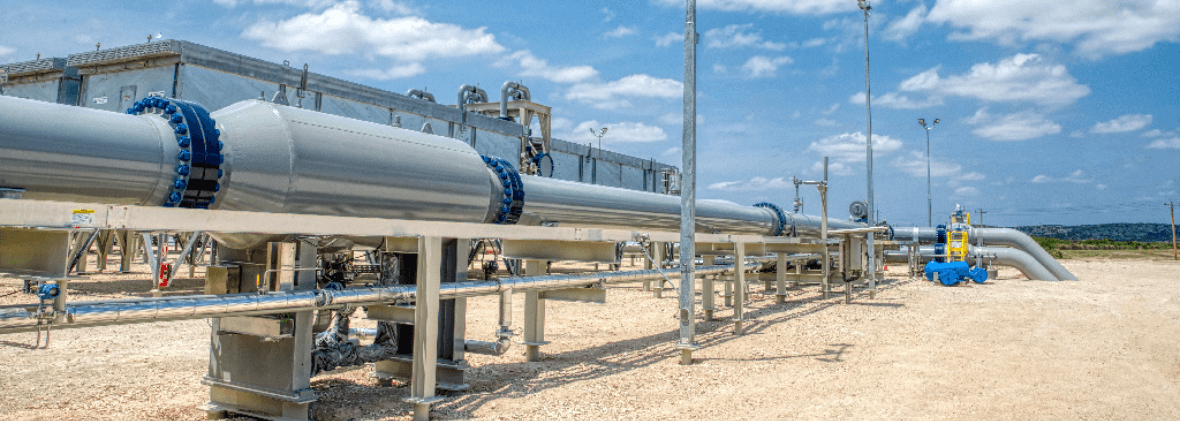A Comprehensive Overview to the Different Sorts Of Oil Field Equipment and Pipeline Equipment Available
The oil and gas sector counts heavily on specialized tools for effective extraction and transport. Numerous kinds of machinery, from drilling rigs to storage space tanks, play vital duties in this complex process. Each tool offers unique features that add to overall functional success. Comprehending these components is vital for anybody associated with the sector. As the industry evolves, so too do the technologies that sustain it. What developments are on the perspective?

Drilling Rigs: The Foundation of Oil Expedition
Drilling rigs serve as the important equipment in the domain name of oil exploration, enabling business to gain access to hydrocarbon gets buried deep below the Planet's surface area. These rigs are available in various types, including land rigs, offshore rigs, and mobile systems, each designed to operate in certain atmospheres. Geared up with sophisticated modern technology, piercing rigs can penetrate geological formations with accuracy, making certain effective resource extraction. The architectural honesty and operational capacities of these rigs are important, as they must stand up to severe problems and considerable stress. The selection of a boring gear affects the overall task price and timeline, making it a vital factor to consider for oil business looking for to enhance their exploration initiatives and optimize efficiency in their operations.
Pumps: Essential for Fluid Motion
In the oil extraction procedure, the role of pumps is significant, helping with the movement of fluids throughout numerous stages of production. Pumps are necessary for transferring petroleum, water, and various other liquids from below ground reservoirs to the surface and then via pipelines to refineries. They are available in different types, consisting of centrifugal, positive variation, and completely submersible pumps, each offering certain purposes based upon the liquid attributes and operational requirements. Centrifugal pumps are commonly used for their effectiveness in high-flow applications, while positive displacement pumps excel in handling thick fluids. The choice of pump effects total efficiency, functional security, and upkeep costs. Appropriate option and maintenance of pumps are important for enhancing manufacturing and lessening downtime in oil area procedures.
Shutoffs: Managing Flow and Pressure

Shutoffs play a crucial duty in taking care of the flow and pressure of liquids within oil fields and pipes. Numerous kinds of valves offer distinct applications, each designed to meet specific functions basic for effective operation - Superior Oilfield Rentals oilfield. Understanding the features and uses these shutoffs is necessary for maximizing system efficiency and safety
Types of Valves
Important components in oil field procedures, valves play a vital duty in controlling the circulation and stress of liquids within pipes and tools. Numerous sorts of shutoffs are made use of to satisfy the diverse demands of oil and gas production. Common types consist of gateway shutoffs, which supply a straight-line circulation and very little stress decline; globe shutoffs, understood for their throttling abilities; and sphere shutoffs, acknowledged for their fast on/off control. Additionally, check valves protect against backflow, while butterfly valves use a light-weight remedy for controling flow. Each valve type is made with details materials and arrangements to endure the extreme conditions usually found in oil fields, making certain integrity and performance in operations. Recognizing these kinds is critical for efficient system monitoring.
Valve Applications and Functions
While various sorts of valves serve unique objectives, their main applications rotate around managing flow and pressure within oil and gas systems. Valves such as gateway, world, and sphere valves manage fluid movement, making certain peak performance and safety and security. Gateway valves are commonly used for on/off control, offering marginal circulation resistance. World shutoffs, on the various other hand, deal precise circulation policy, making them suitable for throttling applications. Round shutoffs are favored for their quick procedure and limited securing capabilities. In addition, pressure safety valve are critical for avoiding system overpressure, protecting tools honesty. In general, the suitable option and application of shutoffs improve functional effectiveness, guaranteeing the dependable transportation of oil and gas through pipes and processing centers.
Compressors: Enhancing Gas Transportation
Compressors play an essential role in the reliable transportation of gas, ensuring that it relocates smoothly via pipelines over lengthy distances. These gadgets enhance the pressure of gas, permitting it to get rid of rubbing and altitude modifications within the pipeline system. Furthermore, compressors help with the harmonizing of supply and demand, accommodating fluctuations in consumption and production prices. Numerous sorts of compressors are used in the market, including centrifugal, reciprocating, and rotating screw compressors, each offering distinct advantages based upon the operational demands. Regular upkeep of these used construction equipment near me compressors is important to make best use of effectiveness and reduce downtime, ultimately contributing to a reputable gas transport network. Their critical function highlights the relevance of compressors in the total oil and gas infrastructure.
Storage Tanks: Safe and Effective Liquid Monitoring
Effective transportation of gas counts on various supporting systems, among which is the proper administration of storage containers. These tanks play an important function in safely consisting of liquids, making certain that functional performance is maintained while minimizing environmental threats. Built from durable products, they are designed to withstand high stress and harsh components. Correctly sized and tactically located, tank help with the smooth flow of gas and various other liquids, protecting against traffic jams in supply chains. Regular maintenance and monitoring are vital to find leakages or architectural issues, advertising security and compliance with governing standards. Eventually, the efficient monitoring of storage containers is critical for the total integrity and dependability of the oil and gas market's fluid handling systems.
Pipeline Systems: Facilities for Transportation
Pipeline systems function as the backbone of the oil and gas industry, helping with the efficient transport of hydrocarbons over substantial ranges. These systems consist of numerous parts, consisting of pipelines, shutoffs, pumps, and compressors, all meticulously created to ensure smooth flow. The materials made use of in pipeline construction, often steel or high-density polyethylene, are picked for resilience and resistance to rust. Pipeline networks can cover across land and water, linking production sites to refineries and warehouse. Furthermore, advanced technology enables real-time surveillance of circulation prices and stress degrees, boosting operational performance. The calculated placement of these pipelines decreases ecological effect while making best use of resource access, thereby playing a vital duty in conference power demands globally.
Safety And Security Equipment: Making Sure Employee and Environmental Security
The procedure of pipeline systems, while vital for energy transportation, likewise offers substantial security obstacles for workers and the environment. Safety and security devices plays a substantial function in alleviating these dangers. Personal safety devices (PPE) such as safety helmets, gloves, and non-slip footwear safeguards workers from physical dangers. Furthermore, gas discovery systems keep track of for leakages, guaranteeing that dangerous compounds do not posture a risk to workers or the bordering community. Emergency this post situation shutdown systems are important for rapidly stopping procedures throughout a crisis, avoiding prospective disasters. Spill containment materials, including absorbents and obstacles, are essential for decreasing environmental effect. On the whole, spending in all-inclusive security tools is essential for maintaining operational integrity and shielding both workers and the setting in the oil and gas field.

Regularly Asked Questions
How Do I Pick the Right Oil Field Equipment for My Job?
Choosing the right oil area tools involves evaluating project requirements, budget restrictions, and operational needs. Consider variables such as equipment integrity, compatibility with existing systems, and the distributor's online reputation to guarantee peak efficiency and security.
What Are the Maintenance Requirements for Oil Field Equipment?
Upkeep needs for oil field tools include routine inspections, lubrication, and prompt repair work. Operators must additionally adhere to producer guidelines, monitor performance metrics, and guarantee conformity with safety and security policies to boost durability and effectiveness.

Just How Can I Make Certain Compliance With Environmental Regulations?
To ensure compliance with environmental policies, companies must conduct routine audits, carry out best techniques, purchase training, keep proper documentation, and stay updated on regulation (Superior Rentals fusion machines). Partnership with environmental companies can also boost adherence to policies
What Is the Ordinary Life Expectancy of Pipeline Equipment?
The ordinary life-span of pipeline devices commonly varies from 20 to 50 years, relying on variables such as Discover More Here worldly high quality, ecological problems, and maintenance practices. Routine inspections can greatly affect longevity and functional performance.
Exactly how Do I Safely Move Oil Field Equipment to Remote Locations?
Moving oil area tools to remote locations calls for mindful planning, consisting of route assessment, protecting authorizations, making use of suitable automobiles, and guaranteeing safety and security procedures are complied with. Correct training and communication amongst staffs are crucial for effective transport.